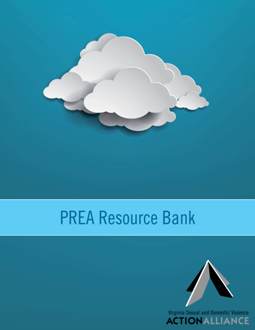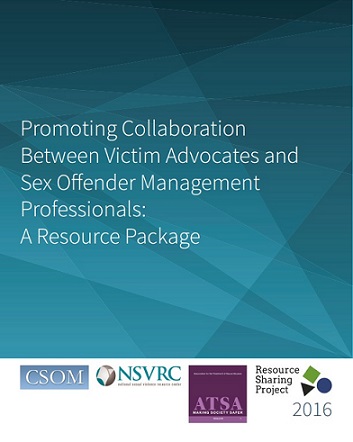Resources Library: Model Policies & Best Practices
Start a Search:
PREA Part 6: CORRECTIONS IN FOCUS: Resources specifically for Corrections Staff

PREA is the first United States federal law dealing with the sexual abuse/assault of people who are incarcerated. The PREA Resource Bank, which offers a collection of essential PREA resources, research, toolkits, templates, and training, is divided into 7 sections.
Part 5, Corrections in Focus, provides tools and resources specific to people working in the corrections field.
PREA Part 7: KEY REPORTS & RESEARCH: Useful reports and research to support your work

PREA is the first United States federal law dealing with the sexual abuse/assault of people who are incarcerated. The PREA Resource Bank, which offers a collection of essential PREA resources, research, toolkits, templates, and training, is divided into 7 sections.
Part 6, Key Reports and Research, is a collection of data, research, and reports that are essential reading for both advocates and correctional facility staff.
PREA Part 8: TRAINING ON DEMAND: Webinars, Videos, Modules

PREA is the first United States federal law dealing with the sexual abuse/assault of people who are incarcerated. The PREA Resource Bank, which offers a collection of essential PREA resources, research, toolkits, templates, and training, is divided into 7 sections.
Part 7, Training on Demand, features a collection of links that will take you to archived webinars, video presentations, curricula, and posters that you can access on demand on your own time.
Promoting Collaboration Between Victim Advocates and Sex Offender Management Professionals: A Resource Package

This document was developed collaboratiely by the Center for Sex Offender Management, National Sexual Violence Resource Center, Resource Sharing Project, Association for the Treatment of Sexual Abusers, Office of Violence Against Women, Office of Sex Offender Sentencing, Monitoring, Apprehending, Registering, and Tracking (S.M.A.R.T.) This resource can be used for cross-training, self-learning, fostering dialogue among new or developing teams, public education, or otherwise supporting multidisciplinary collaboration to respond to sexual violence.
Race to Lead: Women of Color in the Nonprofit Sector
This report reveals that women of color encounter systemic obstacles to their advancement over and above the barriers faced by white women and men of color. Education and training are not the solution—women of color with high levels of education are more likely to be in administrative roles and are more likely to report frustrations about inadequate and inequitable salaries. BMP’s call to action focuses on systems change, organizational change, and individual support for women of color in the sector.

